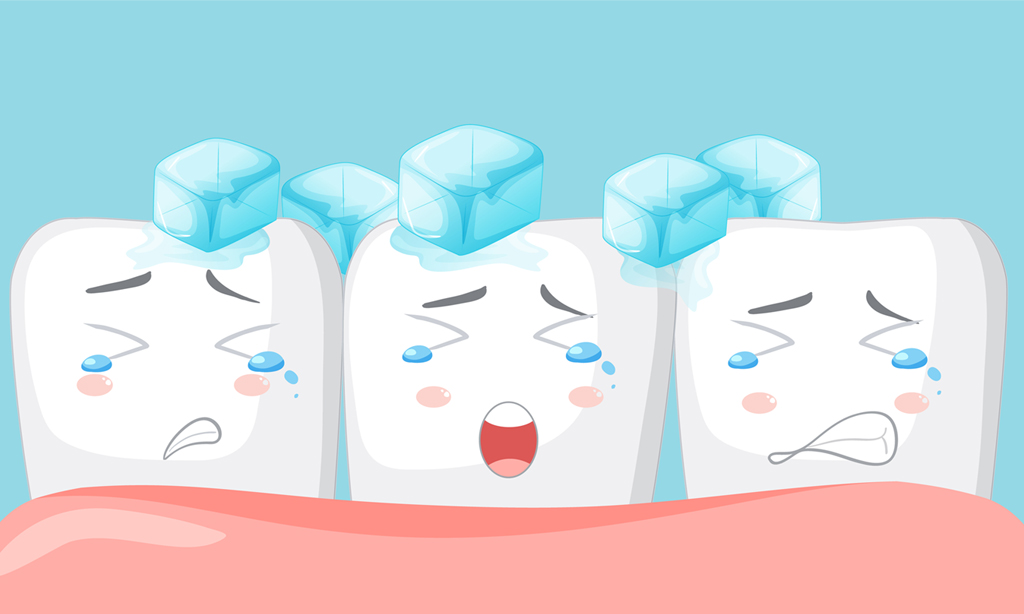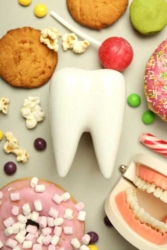Tooth Sensitive to Cold Foods and Drinks — What to Do?
If you are asking yourself, ‘why is my tooth sensitive to cold water and other drinks?’ it would be best if you acted on time. This type of pain can be considered a tooth emergency, and the only thing to do is try and solve the problem.
But the first thing you will need to do is find what’s causing the sensitivity. And the simplest way to do that is to visit a walk-in dentist and see how to fix the problem. If you are looking for a dental emergency, you can click here and see all the info you need.
Let’s talk about emergency dental services, how to deal with sensitive teeth, and what to do if one tooth is sensitive to cold.
Why Is Your Tooth Sensitive to Cold?
Sensitive teeth can mean many different things. The sensitivity can be a sign of a minor problem or point out a major issue. That is why it would be ideal if you knew what triggered the sensation. In the ideal scenario, you would visit your dentist and get to the bottom of it.
Luckily, a check-up is also the simplest way to discover the source of the problem and start working towards solving it, so you should not have any problems seeing a specialist. As for the solution, it mostly depends on the type of the problem.
Even if a person notices a sharp pain in their tooth after eating or drinking something hot or cold, it doesn’t always need to be a serious problem. In fact, there is a chance it is not tooth-related at all. Naturally, the more intense the pain is, the more urgent your visit to the emergency dentist should be. But why does it happen? Once the protective layer of the tooth gets damaged or destroyed, the inner, more sensitive part of the tooth will get exposed. And with that, it will be prone to react to the environment, including the changes in the temperature.
Furthermore, the cementum or the layer protecting tooth roots can also get exposed. In the majority of cases, it happens because of receding gums.
Why Does It Occur?
Tooth enamel can get damaged or destroyed in various ways. Damage can be caused by harsh dental products, brushing your teeth vigorously, different types of food, and of course, tooth decay.
But as we mentioned earlier, it can also be caused by gum disease. And this is why so many dentists talk about the importance of oral hygiene. It can solve so many problems. Oral health also includes proper brushing and taking care of your gums as well. And all of this is one of the safest methods of preventing teeth problems in the future.
In addition, other things that can trigger the sensitivity are receding gums, infections of teeth or gums, smoking, drinking, and even some types of acidic food. At the same time, it is possible for your tooth pain to be caused by dental work. In the majority of cases, the treatment was done poorly, and it is what’s causing the pain in the first place.
Sometimes, the crown can shift due to breakage or loosening, and it will suddenly become a poor fit. Furthermore, the same thing applies to fillings as well. We always believe that once the filling is placed, our teeth are healthy, and there is nothing to worry about. But if the cavity isn’t removed completely or if the crown is too deep, it can be the answer to why your tooth is sensitive to heat.
What to Do?
The most obvious answer would be to visit your dentist. They will be able to provide the necessary info and offer you the plan to recover. The key to solving the problem would be to discover the reason behind the pain. As soon as your dentist understands why your teeth hurt, they will be able to provide the solution.
Of course, the obvious solution is not always possible. You might have found yourself in a situation where visiting the dentist is not something you could do. And the way to approach the problem can change. If you are looking for some form of first aid, try using a home remedy to ease the pain.
There are a few items you will need, and each can help with the problem. Some of these home remedies are honey, saltwater, hydrogen peroxide, and green tea. In most scenarios, you will use them to rinse your mouth. If you dilute hydrogen peroxide in warm water, it can ease the sensitivity of the teeth. Of course, all of these are just ways to feel better. You will still need to find the root of the problem.
You can also try changing things in your life. If you can, try out a different toothbrush or toothpaste. It is the simplest way to start working on oral hygiene improvements. And if the pain continues, visiting the dentist is the only solution.
How To Solve the Problem
As we mentioned earlier, the first step toward solving the problem is identifying it. In the majority of cases, solving the issue won’t be too complex. For example, if the issue is with the crown, replacing it will eliminate the sensitivity. The same thing applies to fillings. If more than one tooth is being sensitive, then there is a chance the problem is gum disease, and you will need to focus on improving your oral hygiene.
A broken tooth (or a chipped one) can expose the dentin inside the tooth, and drinking cold drinks or eating cold foods can easily cause the pain. Using a soft toothbrush for sensitive teeth and a quick visit to the dentist will solve all of your problems. Naturally, a chipped tooth will need to be repaired, and sometimes, the damage is caused by tooth decay, meaning the only solution is the root canal treatment. The best solution is to seek for emergency dental care, and get the tooth fixed as soon as possible.






